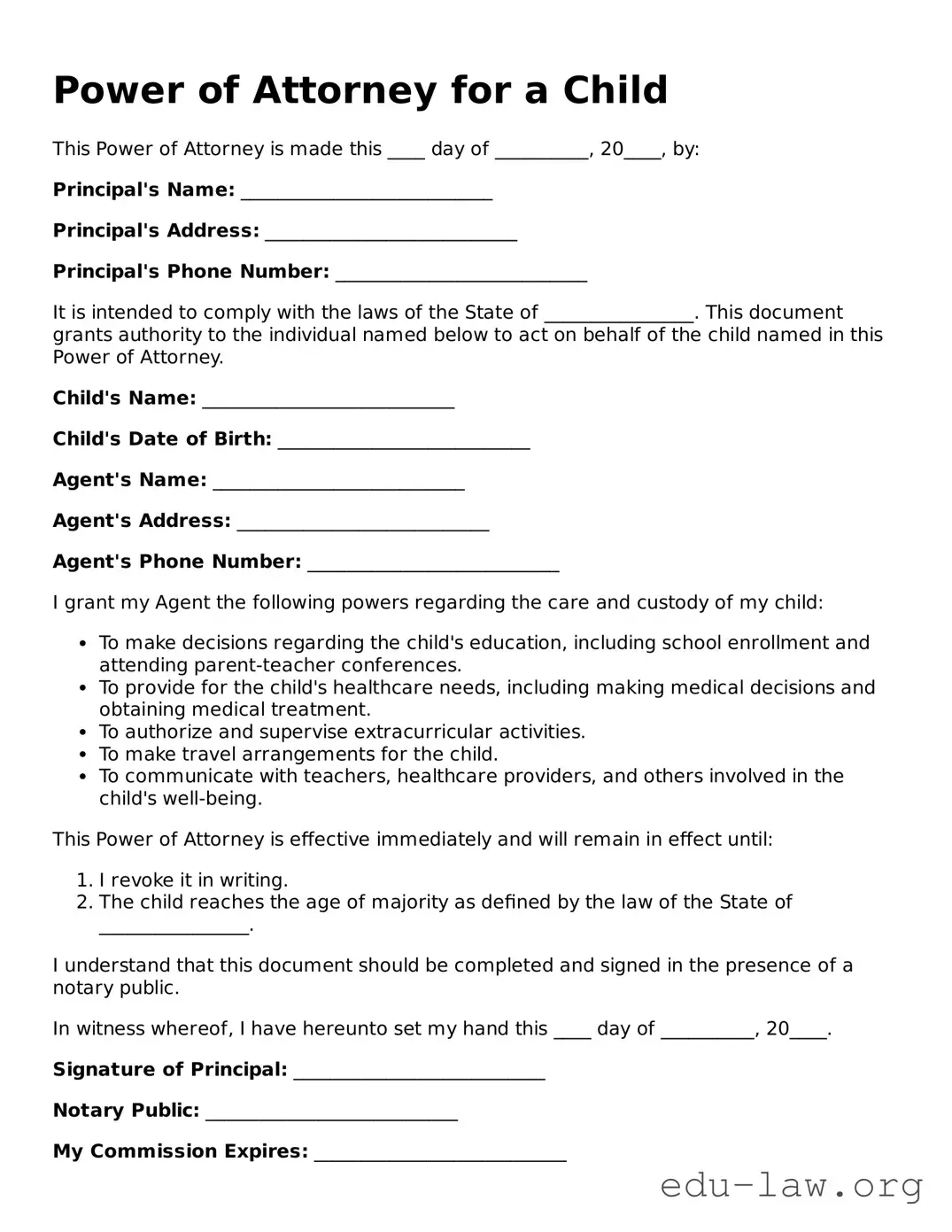What is a Power of Attorney for a Child?
A Power of Attorney for a Child is a legal document that allows a parent or legal guardian to appoint another adult to make decisions on behalf of their child. This arrangement is especially useful when the parent or guardian is unavailable due to travel, health issues, or other reasons. The appointed individual can handle various aspects of care, including medical decisions and educational needs.
Who can be appointed as a Power of Attorney for a Child?
Any responsible adult can be appointed as the attorney-in-fact, as long as they are trustworthy and willing to take on the responsibilities. This could be a relative, close friend, or a professional caretaker. It's important to ensure that the chosen individual understands the needs of the child and is prepared to make decisions that reflect the child’s best interests.
Why would a parent need a Power of Attorney for a Child?
Parents might need this document in various situations, such as extended work trips, military service, or during a medical emergency when they cannot be present to make decisions for their child. This legal arrangement ensures that the child’s needs are still met, and the designated person can act swiftly in the parent's absence.
Does a Power of Attorney for a Child affect parental rights?
No, appointing someone as a Power of Attorney does not terminate or diminish parental rights. The parent or guardian retains full custody and control over their child’s affairs unless they decide to delegate certain responsibilities through this legal form. It serves as a temporary measure designed to help in specific situations.
Is there a specific format for the Power of Attorney for a Child?
While there is no universally mandated format, the document should clearly state the powers being granted and must be signed by the parent or legal guardian. It’s advisable to have the form notarized to ensure that it holds up in legal situations, although not all states require this for it to be valid.
How long does a Power of Attorney for a Child last?
The duration of the Power of Attorney can vary based on what is specified in the document. Parents can set a specific time frame for the arrangement or indicate that it remains effective until revoked. It’s important to communicate this timeframe to the appointed individual to avoid any confusion about their responsibilities.
Can the Power of Attorney for a Child be revoked?
Yes, a parent can revoke the Power of Attorney at any time as long as they are in a position to do so. This is typically done through a written notice to the person acting as the attorney-in-fact. Once the revocation is made, the attorney-in-fact no longer has any authority to make decisions on behalf of the child.
What decisions can the appointed person make?
The appointed individual can make a variety of decisions regarding the child's care, which may include medical treatment, educational choices, and day-to-day decisions related to the child's well-being. Parents should clearly outline the specific powers granted in the document to avoid any misunderstandings.
Do both parents need to sign the Power of Attorney for it to be valid?
If both parents have legal custody of the child, it is advisable for both to sign the Power of Attorney for it to be recognized fully. In cases where one parent is absent, the present parent can still create a valid Power of Attorney. However, it's essential to check local laws and regulations as there may be specific requirements that vary by state.
Where should I store the Power of Attorney for a Child document?
After completing the Power of Attorney, it's crucial to keep it in a safe yet accessible location. Consider giving a copy to the appointed individual and any relevant parties, such as schools or medical professionals. Keeping both a physical and a digital copy can ensure that it is readily available when required.
